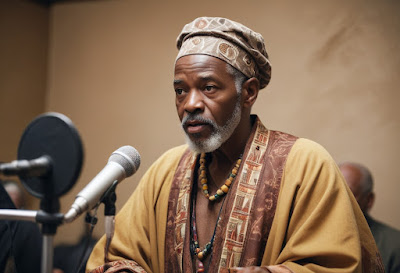Navigating Non-Christian Identity: Strategies for Surviving Religious Discrimination
 |
| Image credit: CreativaImages |
Navigating Non-Christian Identity: Strategies for Surviving Religious Discrimination
Introduction
The reality of the modern world is that it isn’t always easy navigating non-Christian identities. Despite the clear need for acceptance and a vibrant celebration of diversity, countering religious discrimination remains an issue across various communities worldwide. It's time to clarify what it is and highlight why it's essential to foster a culture that celebrates diversity instead of allowing religious barriers.
Definition of Religious Discrimination
Religious discrimination is the unjust or prejudiced treatment of individuals or groups based on their religious beliefs or lack thereof. It entails:
- Being treated unfairly because of your religion
- Being denied the same rights or opportunities as others because of your faith
- Being subjected to hate speech or violence due to your religious beliefs
Importance of Embracing Diversity and Acceptance
Embracing diversity and acceptance isn’t just about being kind—it’s about creating an environment where people feel acknowledged and appreciated for their unique perspectives and experiences. Diversity introduces fresh ideas, combating stale, repetitive thinking, and fosters a society where every individual has an equal opportunity to thrive. Acceptance, on the other hand, creates a sense of belonging and helps in the establishment of peaceful, inclusive communities.
Understanding Non-Christian Identity
It's essential to peel back the layers and delve deep into understanding the vast spectrum of non-Christian identities. These identities encompass a colorful array of religions, philosophies, cultures, and belief systems that deviate from the traditional Christian narrative.
Explanation of non-Christian Religions and Beliefs
Non-Christian identities include not only those who adhere to established faiths such as Buddhism, Islam, Judaism, Hinduism, and others, but also those who identify as agnostic, atheist, spiritual-not-religious, and a multitude of other belief structures. Some core values across these systems often involve concepts of respect, peace, justice, harmony, and individuality.
• Buddhism dwells on personal spiritual cultivation and the path of mindfulness.
• Islam underscores submission to the divine will and living a virtuous life.
• Judaism nurtures a covenantal relationship with God and a sense of community.
• Hinduism promotes virtue, duty, and cosmic order.
Common Misconceptions and Stereotypes
There are numerous pervasive misconceptions and stereotypes about non-Christian identities that can fuel discrimination. These exaggerations or falsehoods might include misconstruing Islam as a violent religion, presuming that all Buddhists are philosophically-minded pacifists, or unfairly categorizing atheists as lacking morals or ethics. These are gross oversimplifications and unjust distortions of complex belief systems, creating unnecessary divides and fostering misunderstanding. It is crucial to confront and challenge these stereotypes to open up more spaces for acceptance and understanding.
Identifying Religious Discrimination
Recognizing religious discrimination can often be the first step towards addressing and combating it. This discrimination pertains to the unjust or prejudiced treatment of individuals based on their religious beliefs, particularly when those beliefs fall outside the majority, such as non-Christian identity in predominantly Christian societies.
Different forms of religious discrimination
Religious discrimination can manifest in a multitude of ways. It could be overt and aggressive, such as hate speech and physical violence, or it may be more subtle, like social exclusion, unfair treatment at workplace, or denial of rights and services. Sometimes, policies or laws may appear neutral on the surface but disproportionately affect non-Christian individuals, thus constituting structural discrimination.
Examples and personal experiences
There are countless instances of this discrimination and everyone's experience is unique. One such example is being treated differently at work because of your faith. Consider this: you're excluded from social gatherings because your co-workers aren't comfortable around non-Christians. Or, perhaps, you're overlooked for promotions, despite your qualifications, due to bias. It’s important to realize that such experiences aren't just isolated incidents—they're manifestations of systemic religious discrimination, and it's crucial to understand this to effectively navigate non-Christian identity.
Strategies for Surviving Religious Discrimination
Living in a predominantly Christian country or community as a non-Christian isn't always easy, but there are strategies for surviving and even thriving amidst religious discrimination. These strategies don't promise to make the path completely smooth - you will still encounter bumps along the way - but they can be tools to help you handle them better. They revolve around building a supportive community, understanding your rights, standing up for yourself and promoting self-growth.
Educating Oneself About Legal Rights and Protections
It is essential to familiarize yourself with the legal protections available against religious discrimination.
- Study federal, state, and local laws that prohibit religious discrimination in various situations.
- Consult legal practitioners or advocacy groups if you believe you've been a victim of religious discrimination.
- Seek legal support if necessary, to ensure your rights are protected and enforced.
Developing Self-Confidence and Resilience
Finally, boosting your confidence and resilience is key to surviving discrimination. First and foremost, don't be ashamed of your non-Christian identity and do not be apologetic about your belief system.
- Engage in activities that promote self-esteem and personal development.
- Be open to having difficult conversations with others about your beliefs.
- Cultivate resources to manage stress and cope with negative experiences, such as discrimination.
 |
| Image credit: tolgart |
Navigating the Workplace
In an ideal world, the workplace would be a haven of diversity and equal opportunity for all. Unfortunately, reality often strays from this ideal. This is particularly true for non-Christians, who may experience discrimination due to their religious or spiritual identity.
Dealing with Discrimination at Work
Where discrimination surfaces, it can manifest in many forms - bystander comments, unequal opportunities, or even explicit acts of hostility. It's important to:
• Recognize that discrimination is not about you, but about the uninformed biases of others.
• Stay resilient and take steps to protect yourself emotionally. This may involve finding a healthy outlet for your emotions, like mediation.
Handling Discrimination in Daily Life
Religious discrimination can subtly weave itself into the fabric of ordinary days, affecting our experiences and interactions. As someone navigating a non-Christian identity, confronting such scenarios is crucial. Here are three strategies to consider.
Responding to Offensive Comments and Attitudes
First, it's key to know how to respond to offensive comments and attitudes. This demands a balance of assertiveness and composure. Start by recognizing that the slur or derogatory remarker may not necessarily reflect a deep-rooted bias, but rather a lack of critical awareness or sensitivity. With intent to educate, not antagonize:
- Stay calm. Let your maturity shine.
- Clarify misconceptions. Politely correct misinformation.
- Set boundaries. Let it be known that you expect and deserve respect.
Educating Others About One's Beliefs
Another practice is the proactive communication of your beliefs. Education can illuminate ignorance, uncover shared values, and promote understanding. Without imposing or preaching:
- Share personal experiences or stories.
- Address stereotypes and common misconceptions.
- Speak out about positive aspects and contributions of your culture or faith.
Engaging in Dialogue and Fostering Understanding
Lastly, it's crucial to establish open dialogue and nurture understanding. Communication and empathy can bridge gaps and dispel prejudices. Thus:
- Invite respectful questions and conversations.
- Listen attentively to others' views and experiences.
- Collaborate in activities that foster diversity and inclusion.
Each interaction is an opportunity for growth - a chance to influence change and engender acceptance. Stand tall in your non-Christian identity, and confront discrimination with grace and wisdom.
Overview of Legal Options in Cases of Religious Discrimination
Understanding your legal options is crucial to surviving religious discrimination. In many countries, such discrimination is considered unlawful under existing legislations. These may encompass aspects from the workplace to education and public services, where your faith should not determine preferential treatment or lack thereof. If you experience discrimination on religious grounds, these are a few actions you can take:
- Filing a lawsuit: If you can provide solid proof of facing discrimination, consider pursuing legal action.
- Lodge a complaint: Several regulatory bodies and human rights commissions exist to oversee the fairness of institutions. Lodge a formal complaint with such organizations.
Creating Change
Combating religious discrimination, notably for non-Christian individuals, goes beyond personal resilience; it extends to the wider community. It involves advocating for inclusive policies, endorsing organizations that foster religious tolerance, and actively promoting the exchange of diverse ideas and experiences.
Advocating for Inclusive Policies and Practices
One of the primary strategies to campaign against religious discrimination is to push for more inclusive policies and practices, both locally and globally. You can play a role in this by:
- Engaging in local community meetings and activities, advocating for acceptance and diversity in these spaces.
- Lobbying with local branches of government for policies that cater to the religious needs of non-Christians.
- Writing to your local representatives about the issue of religious discrimination.
Supporting Organizations Promoting Religious Tolerance
Another effective strategy is to actively endorse and support organizations or entities promoting religious tolerance and acceptance. This can be done by donating, volunteering, or simply helping to highlight their work and initiatives.
These organizations often provide resources and support to individuals struggling with the challenges of religious discrimination, while also advocating for systemic change, making them instrumental allies in this fight.
 |
| Image credit: Vepar5 |
Conclusion
As I wrap up this enlightening discussion, it's paramount to revisit and recap some of the essential strategies you've explored for combating religious discrimination.
Recap of Strategies for Surviving Religious Discrimination
These strategies include educating yourself and others about your faith and its perceptions, pursuing legal protection where necessary, and finding strength in your individuality. On a larger scale, it entails encouraging community dialogues that promote understanding, tolerance, and harmony among different faiths, a concept underpinning the ideology of diversity and acceptance.
• Educate yourself
• Seek legal protection
• Encourage community dialogues
Encouragement to Embrace Diversity and Foster Acceptance in Society
Moving forward, I encourage everyone to nurture an environment of diversity and acceptance, whether they are non-Christians or part of any other religious or non-religious group. Your differences make you unique, and it's this uniqueness that enriches today's world. Remember, embracing diversity isn't just about tolerance—it's about appreciating and celebrating these differences. Society should strive to build a society where every individual, irrespective of their religious affiliation, can live without fear of discrimination.







Comments
Post a Comment